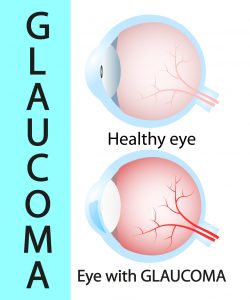 Depression on its own can be a very challenging condition to deal with. This diagnosis not only affects the mind, but can affect the body as well. It can make everyday tasks difficult to deal with such as sleeping, working, and even eating. Because of the effect of depression on eating behaviors, weight gain or loss can occur through appetite changes unrelated to diet. Not only that, but because of the many lifestyle changes that come with a diabetes diagnosis, depression is seen two to three times more often in such patients than those without diabetes. A recent study looked at how diet and exercise factors can affect the relationship between depression and metabolic syndrome.
Depression on its own can be a very challenging condition to deal with. This diagnosis not only affects the mind, but can affect the body as well. It can make everyday tasks difficult to deal with such as sleeping, working, and even eating. Because of the effect of depression on eating behaviors, weight gain or loss can occur through appetite changes unrelated to diet. Not only that, but because of the many lifestyle changes that come with a diabetes diagnosis, depression is seen two to three times more often in such patients than those without diabetes. A recent study looked at how diet and exercise factors can affect the relationship between depression and metabolic syndrome.
What is depression?
We all may feel depressed from time to time. However, a diagnosis of depression is a chronic display of such feelings that can affect daily life, relationships, and can cause both psychological and physical symptoms. If the following symptoms occur for two weeks or more, then you should see a doctor for possible diagnosis and treatment of depression.
- Feeling sad or having a depressed mood
- Loss of interest in activities once enjoyed
- Changes in appetite
- Weight loss or gain unrelated to dieting
- Trouble sleeping or sleeping too much
- Loss of energy or increased fatigue
- Slowed movements and speech
- Feeling worthless or guilty
- Difficulty concentrating or making decisions
- Thoughts of death or suicide
Conditions related to the thyroid, nutrient deficiencies, or tumors of the brain can mimic symptoms of depression. Therefore, such underlying causes should be ruled out by a qualified healthcare provider.
Metabolic syndrome and depression
Metabolic syndrome is the name for a group of risk factors that can increase a person’s risk of chronic diseases like diabetes and stroke.
- A waist circumference of more than 35 inches for women and 40 inches for men
- A triglyceride level of 150 mg/dL or higher
- An HDL cholesterol level of less than 50 mg/dL for women and less than 40 mg/dL for men
- A blood pressure of 130/85 mmHg or higher
- A fasting blood sugar level of 100 mg/dL or higher
Research shows that there is a relationship between those with depression and metabolic syndrome. A recent study looked at this relationship to see what exactly is causing it. Researchers looked at data from over 64,000 adults. Study results show that those with depression are highly linked to a high fat, high sugar diet regimen and low levels of physical activity.
Researchers suggest that diet and exercise may link depression and metabolic syndrome. However, they also state that inflammation and genetic factors have a greater causal link between the two conditions. Inflammation can develop as a result of the stress on the brain due to depression that may cause an imbalance in gut microbiome. This link is a theory known as the gut-brain axis. This in turn, could cause inflammation in the body that could increase risk of chronic diseases like heat disease and diabetes.
How to lower risk of metabolic syndrome
Besides diet and exercise, you can use the tips below to help lower your risk of metabolic syndrome.
- Add more fruit and vegetables to your diet: More fruits and vegetables means more antioxidants. And more antioxidants in your diet means more anti-inflammatory power. In turn, you can help reduce inflammation in your body by adding more colorful fiber sources to your plate at each meal.
- Move more: Exercising at least 30 minutes a day for most days of the week can help you manage your weight. It can also help you manage stress and strengthen your heart. All of these factors can help reduce inflammation in your body and lower chronic disease risk.
- Stop smoking or never start: Smoking can constrict blood vessels and in turn can increase heart disease risk. Therefore, if you already smoke, visit Smokefree.gov to quit. If you have never started smoking, then don’t. Your body will thank you.
- Take a daily supplement: If you are deficient in nutrients, then this could put you at risk for conditions like depression that have an inflammatory link. Certain supplements can also help you gain better control over your blood glucose levels too. Glucarex by Vita Sciences is one such supplement that uses chromium, alpha lipoic acid, and cinnamon to help support weight loss, metabolism, and blood glucose levels.
-written by Staci Gulbin, MS, MEd, RD
References:
American Psychiatric Association (January 2017) “What is Depression?” Physician Review By: Ranna Parekh, M.D., M.P.H.
Matta J, Hoertel N, Kesse-Guyot E, et al. (2019) Diet and physical activity in the association between depression and metabolic syndrome: Constances study. J Affect Disord., 244:25-32.
National Heart, Lung, and Blood Institute (accessed November 6, 2018) “Metabolic Syndrome.”
 It may seem like common sense that living a healthier lifestyle can lower your disease risk. but what exactly is a healthier lifestyle? With so much information on health and wellness in the media, it can be hard to know what healthy really is. From low carb to keto to fasting, each diet plan claims to be the best and healthiest. However, the healthiest eating regimen is going to be the one that makes your unique body feel its best and that you can stick with for the long term. Not to mention, that being healthy is about more than just diet. Staying active, managing stress, and sleeping well enough are just some behaviors that affect health. Recent research shows that leading a healthier lifestyle can reduce your stroke risk and in turn improve your quality of life.
It may seem like common sense that living a healthier lifestyle can lower your disease risk. but what exactly is a healthier lifestyle? With so much information on health and wellness in the media, it can be hard to know what healthy really is. From low carb to keto to fasting, each diet plan claims to be the best and healthiest. However, the healthiest eating regimen is going to be the one that makes your unique body feel its best and that you can stick with for the long term. Not to mention, that being healthy is about more than just diet. Staying active, managing stress, and sleeping well enough are just some behaviors that affect health. Recent research shows that leading a healthier lifestyle can reduce your stroke risk and in turn improve your quality of life. It’s well-known that healthy fats can help improve heart health. But did you know that they could also help you stay healthy all over as you get older? Omega-3 fatty acids are a form of unsaturated healthy fats. You can find these fatty acids in plant-based oils and vegetables like avocado. However, you can also find healthy fats in seafood like fatty fish. It’s this latter form of fatty acids that has been studied recently in connection with aging. Let’s take a look at what omega-3 fatty acids are, where you can find them, and how they can help you stay healthy as you age.
It’s well-known that healthy fats can help improve heart health. But did you know that they could also help you stay healthy all over as you get older? Omega-3 fatty acids are a form of unsaturated healthy fats. You can find these fatty acids in plant-based oils and vegetables like avocado. However, you can also find healthy fats in seafood like fatty fish. It’s this latter form of fatty acids that has been studied recently in connection with aging. Let’s take a look at what omega-3 fatty acids are, where you can find them, and how they can help you stay healthy as you age. Sleep is a valuable commodity. And it is a whole lot more important than many of us may think. How many times have you told yourself that you can survive on very little sleep. Or maybe you have said that you have more important things to do besides sleep. Sleep is not only important for providing you energy to get through the day. It can also impact your health in a major way if you don’t get enough. Recent research shows that getting more sleep at night could help you lose weight and improve health.
Sleep is a valuable commodity. And it is a whole lot more important than many of us may think. How many times have you told yourself that you can survive on very little sleep. Or maybe you have said that you have more important things to do besides sleep. Sleep is not only important for providing you energy to get through the day. It can also impact your health in a major way if you don’t get enough. Recent research shows that getting more sleep at night could help you lose weight and improve health. An essential part of a heart healthy diet is plenty of plant-based unsaturated fats. Not only do plant-based foods provide heart-healthy fiber, but they are also rich in antioxidants. These antioxidants can help reduce inflammation in the body, and in turn reduce chronic disease risk. One such group of antioxidants are the omega-3 fatty acids found in such foods as avocado, plant-based oils and fatty fish. Recent research shows that these healthy fats may be able to help with mental health. A recent study shows that by increasing the amount of healthy fats in your diet, you could help reduce symptoms of anxiety.
An essential part of a heart healthy diet is plenty of plant-based unsaturated fats. Not only do plant-based foods provide heart-healthy fiber, but they are also rich in antioxidants. These antioxidants can help reduce inflammation in the body, and in turn reduce chronic disease risk. One such group of antioxidants are the omega-3 fatty acids found in such foods as avocado, plant-based oils and fatty fish. Recent research shows that these healthy fats may be able to help with mental health. A recent study shows that by increasing the amount of healthy fats in your diet, you could help reduce symptoms of anxiety. The Greek-style diet has long been touted as one that is full of heart healthy benefits. These benefits are thought to stem from the vast array of healthy fats from plant-based sources and limiting of saturated fats from red meats as well as the rich source of fruits and vegetables in this Mediterranean regimen. However, the health benefits may extend much further than initially realized. A recent study shows that the Mediterranean diet may help to lengthen life of older adults.
The Greek-style diet has long been touted as one that is full of heart healthy benefits. These benefits are thought to stem from the vast array of healthy fats from plant-based sources and limiting of saturated fats from red meats as well as the rich source of fruits and vegetables in this Mediterranean regimen. However, the health benefits may extend much further than initially realized. A recent study shows that the Mediterranean diet may help to lengthen life of older adults. Any kind of movement is good for health. Studies have shown time and again that sitting is bad for health. But, is one kind of exercise better than the other when it comes to weight loss? This is a controversial topic since some studies show that strength training can keep calories burning long after your workout. However, a recent study has shown that cardio exercise may actually be better than strength training in boosting metabolism.
Any kind of movement is good for health. Studies have shown time and again that sitting is bad for health. But, is one kind of exercise better than the other when it comes to weight loss? This is a controversial topic since some studies show that strength training can keep calories burning long after your workout. However, a recent study has shown that cardio exercise may actually be better than strength training in boosting metabolism. About alcohol
About alcohol Could it be? Could the delicious sweetness of chocolate actually be good for you? The answer is yes, but in moderation. Chock full of antioxidants, this delicious treat may be able to help you combat heart disease. A recent study has shown that moderate consumption of chocolate can reduce risk of heart disease.
Could it be? Could the delicious sweetness of chocolate actually be good for you? The answer is yes, but in moderation. Chock full of antioxidants, this delicious treat may be able to help you combat heart disease. A recent study has shown that moderate consumption of chocolate can reduce risk of heart disease. What is glaucoma?
What is glaucoma?